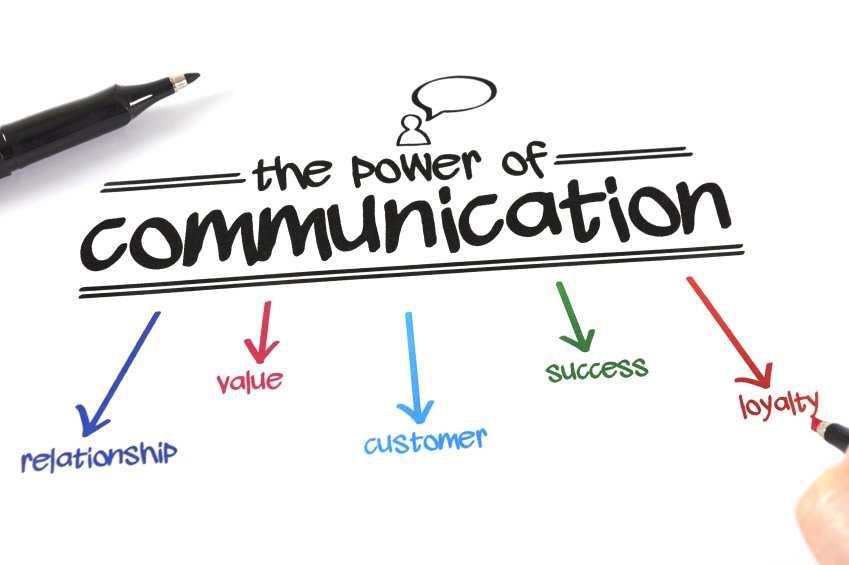
No matter your industry, practical business communication skills are essential for supporting your career development. Clear communication can affect your interactions with others and help you make an impact in the workplace. Additionally, developing your business communication techniques is advantageous for advancing your job. In this article, we discuss business communication skills, how you can improve them, and how you can highlight them in the workplace and during the job search.
What are business communication skills?
Business communication skills include traits that help professionals convey information in the workplace. These skills encompass primary forms of communication, like active listening and communication techniques necessary to build professional relationships, like negotiation and networking skills. Business communication skills are essential for supporting team collaboration, giving and receiving clear feedback, and encouraging creativity. Using your business communication skills effectively can show your employer how you interact with others, initiate activities, and achieve results.

Examples of business communication skills
Business communication skills can encompass hard and soft skills that help professionals succeed. The following examples include skills that are important for effective communication in business:
Collaboration skills
Effective collaboration is necessary for working with colleagues and supporting your organization’s goals. This aspect of your business communication skills requires asking questions during team meetings, considering others’ ideas and perspectives, and encouraging your team’s contributions. With strong collaboration skills, professionals can develop successful strategies that help their organizations achieve desired results.
Negotiation skills
Negotiation skills are essential for evaluating alternative solutions, building rapport with other professionals, and seeking compromise. Business professionals use negotiation skills to make sales transactions, acquire new partners, and seek investors. Likewise, employees and employers may depend on practical negotiation skills to establish salary and pay.
Diplomacy skills
Diplomacy is a skill set that can enhance how professionals build relationships with colleagues, supervisors, clients, and other professionals. It requires tact and understanding of how to communicate stressful situations and challenges. Additionally, diplomacy skills can support your persuasiveness and assertiveness during negotiations, collaborative projects, and other activities.
Written communication
Written communication is a primary form of communication that is necessary no matter your career field. Communicating information in writing, drafting reports, sending messages, and reviewing written documents are everyday business tasks that rely on strong writing skills. Writing skills also include reviewing writing for errors and determining revisions that can enhance written materials.
Presentation skills
Developing and delivering engaging presentations to diverse audiences is another essential skill for effective business communication. Presentation skills help professionals organize the structure of a display, design the delivery method, and communicate information to teammates, business executives, and other professionals. Another important aspect of your presentation skills is using various techniques to engage with an audience, including oral speaking, visual representations, and nonverbal interactions.
Public speaking skills
Speaking in front of various audiences sometimes requires multiple job roles. Preparing a speech and engaging an audience can help businesses address network professionals, potential investors, and communities. Public speaking also requires connecting with an audience through telling a story, providing relevant information, and creating awareness about trending topics.
:max_bytes(150000):strip_icc()/112156302-56b097c33df78cf772cfe6c5.jpg)
Active listening
Active listening includes various traits that help professionals improve understanding and foster supportive work relationships. Professionals who ask questions, seek mutual understanding and consider others’ thoughts and ideas often succeed in building advantageous professional networks. Additionally, active listening skills require attention to detail to avoid miscommunications and recall specific details during conversations, meetings, and other office interactions.
Feedback and input
Effective business communication relies on regular feedback and input. Constructive feedback encourages reflective thinking and improvement. Successful professionals apply feedback from their superiors to improve performance and achieve objectives. Similarly, it’s important to provide input and advice in the workplace to share ideas and inspire others.
Delegation skills
Managers and leaders in the workplace rely on delegation skills to organize, direct, and oversee projects and tasks. Efficient delegation depends on your ability to designate and manage the workflow of important projects among your team members. Establishing expectations and providing support and resources are essential aspects of your delegation skills for business communication.
Nonverbal communication
Nonverbal communication skills refer to your ability to understand what others are conveying through their body language. Eye contact, posture, and even an individual’s stance can help you know what someone is feeling. Nonverbal communication is also beneficial for interacting appropriately in different situations, such as maintaining professionalism during company meetings.
Conflict resolution
Working through challenges with others and finding creative solutions to workplace problems is crucial for solid business communication skills. Successful conflict-resolution skills help professionals discuss alternative approaches, evaluate strategies, and compromise to ensure positive outcomes in stressful situations.
Decision-making skills
Analyzing factors influencing outcomes and evaluating alternative approaches to various actions require solid decision-making skills. As you advance in your career, you may take on essential tasks that require you to consider difficult choices, assess your strategies for meeting objectives, and make meaningful decisions that support your organization’s growth and development.
How to improve business communication skills
Consider the following approaches to improve your business communication skills:
1. Learn to listen actively
Develop your active listening skills and ensure you understand the information you receive from others in the workplace. For instance, avoid miscommunications by clarifying things you need help understanding. During meetings or team collaborations, encourage others to give input, ask questions, listen to other ideas, and take notes to keep track of critical topics.
2. Use collaboration tools
Use digital resources to help you stay in touch with coworkers, team leaders, and other staff members. For instance, online communication platforms allow you to collaborate effectively with your team while avoiding interruptions. These resources can help you communicate quickly and clearly with others and streamline communications throughout the workplace.
3. Improve your writing skills.
Practice your writing skills and how you communicate information in writing. Several excellent approaches to developing your writing skills include note-taking during team collaborations, organizing project materials, and writing instructional resources. Learn when to maintain professionalism in your writing and when to use more informal language to convey your messages.
4. Motivate others in the workplace.
Use positive communication techniques to help motivate your team. Connect with others in the workplace through mutual interests, collaborative efforts, and encouraging creativity: open communication fosters community and trust, both critical aspects of creating a positive work environment.
5. Ask for feedback
Get feedback from your coworkers and supervisors about your business communication. For example, apply suggestions to strengthen areas like public speaking, delegation, and giving presentations as you develop on the job. Additionally, observe effective business communicators at work to gain insight into how to enhance different aspects of your skills that you feel need improvement.
Business communication skills in the workplace
Consider the following tips to demonstrate your business communication skills at work and impact others positively:
- Be tactful when taking on challenges and new tasks. Ask questions and be open-minded about feedback from others.
- Offer to organize and deliver upcoming presentations to practice your speaking skills and ability to engage professional audiences.
- Participate in business negotiations and provide input when necessary and relevant. Help colleagues analyze alternative outcomes, weigh strategies, and build rapport with others.
- Clarify information when delegating project tasks by providing clear direction, setting distinct objectives, and encouraging open communication should team members question their responsibilities.
- Practice nonverbal communication techniques such as maintaining eye contact during conversations, nodding when you agree, and acknowledging others’ ideas.
- Offer to mentor new employees and support them through constructive and applicable feedback. Mentoring is an excellent way to demonstrate your leadership and business communication skills.
How to highlight business communication skills
During the job search, there are several ways you can highlight your business communication skills, including:
Business communication skills on your resume
Showcase your business communication skills in a section of your resume where employers can see them immediately. In your work experience section, provide specific examples of how you applied different business communication skills to achieve a successful outcome. Describing how your skills contributed to your past role can help employers understand how you perform.
Business communication skills in your cover letter
Reiterate how your Essential Business Communication Skills can help the employer reach a goal or desired result. Connect your values with your skills to show employers your motivation to contribute to their organization. It’s also essential to explain how you plan to use your business communication techniques to succeed in your role.
conclusion
In a job interview, you can highlight your business communication skills by discussing how you interacted with colleagues and supervisors in past roles. Give details about your hard skills, including writing and presenting, to show the interviewer how you can apply those skills in the position you’re interested in.
What is essential in business communication?
Written Communication: Skills for writing clear, concise, and actionable messages. Non-verbal Communication: Using body language, facial expressions, and gestures to convey messages without words. Listening: The ability to accurately receive and interpret messages in communication.
What are the 5 C's of communication?
Remember the 5 Cs of effective communication: clear, cohesive, complete, concise, and Concrete. Be Clear about your message, Cohesive by staying on-topic, Complete your idea with supporting content, Concise by eliminating unnecessary words, and Concrete by using precise words.









